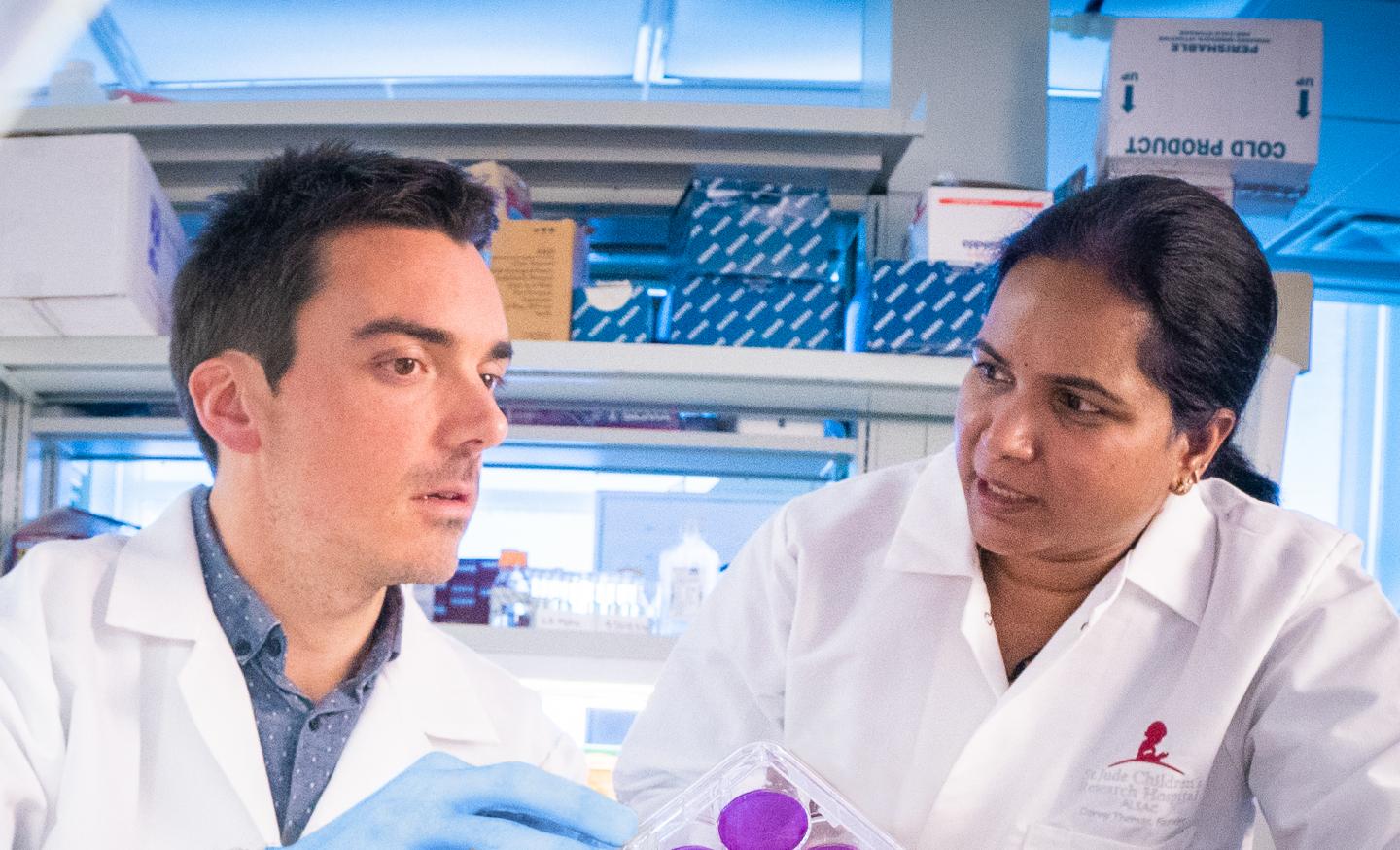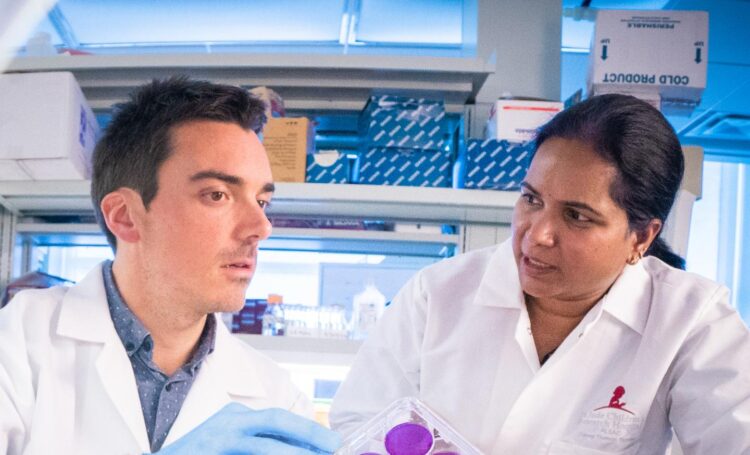Scientists at St. Jude Children’s Research Hospital have shed light on the mechanisms that underlie how Aspergillus fumigatus activates the inflammasome, with implications for therapeutic development

Credit: St. Jude
Scientists at St. Jude Children’s Research Hospital have identified the mechanisms behind inflammasome activation driven by infection with the fungal pathogen Aspergillus fumigatus. Fungal infection, especially with A. fumigatus, is a leading cause of infection-associated deaths in people with compromised immune systems. The work provides clues to a potential therapeutic approach for treating infectious and inflammatory disorders. The findings were published online today in Nature.
“Inflammasomes are important sentinels of an organism’s innate immune defense system,” said corresponding author and founding member of the inflammasome field Thirumala-Devi Kanneganti, Ph.D., of the St. Jude Immunology department. “Our prior work showed that fungal pathogens activate the inflammasome, but the exact mechanism of action for inflammasome engagement was unknown.”
To understand these mechanisms for A. fumigatus, the scientists looked for pathogen-associated molecular patterns, which can stimulate the innate immune response by activating the inflammasome. The scientists focused on NLRP3, the most-studied inflammasome sensor.
The research identified galactosaminogalactan (GAG), a novel fungal pathogen-associated molecular pattern. GAG is essential for A. fumigatus-induced NLRP3 inflammasome activation. The scientists showed that A. fumigatus deficient in GAG fail to induce inflammasome activation. Conversely, over-production of GAG by A. fumigatus increases inflammasome activation.
Additionally, inflammasome activation is critical for clearing A. fumigatus infections in animals. The A. fumigatus fungal strain that failed to produce GAG was more virulent in mice, while the strain that over-produced GAG was less virulent.
Similarly, inflammasome activation is protective during gut inflammation in a mouse model of colitis, an inflammatory disease. Treatment with purified GAG provided protection against colitis.
“We showed that protection against this inflammatory disease was dependent on the ability of GAG to induce inflammasome activation,” said first author Benoit Briard, Ph.D., formerly of St. Jude Immunology. “These findings demonstrate the mechanism for the therapeutic potential of GAG in inflammatory diseases.”
###
The study’s other St. Jude authors are Parimal Samir, David Place, R.K. Subbarao Malireddi, Rajendra Karki, Shelbi Christgen, Peter Vogel, Ravi Kalathur and Cam Robinson. Other authors include Thierry Fontaine, Laetitia Muszkieta, Rémi Beau, Perrine Bomme, and Oumaima Ibrahim-Granet of Institut Pasteur; Emilia Mellado of Instituto de Salud Carlos III; Benard Henrissat of Aix-Marseille Université and King Abdulaziz University; and Jean-Paul Latgé of Institut Pasteur and Foundation for Research and Technology-Hellas.
The research at St. Jude was funded in part by grants from the National Institutes of Health (AI101935, AI124346, AR056296 and CA253095) and ALSAC, the fundraising and awareness organization of St. Jude.
St. Jude Children’s Research Hospital
St. Jude Children’s Research Hospital is leading the way the world understands, treats and cures childhood cancer and other life-threatening diseases. It is the only National Cancer Institute-designated Comprehensive Cancer Center devoted solely to children. Treatments developed at St. Jude have helped push the overall childhood cancer survival rate from 20% to 80% since the hospital opened more than 50 years ago. St. Jude freely shares the breakthroughs it makes, and every child saved at St. Jude means doctors and scientists worldwide can use that knowledge to save thousands more children. Families never receive a bill from St. Jude for treatment, travel, housing and food — because all a family should worry about is helping their child live. To learn more, visit stjude.org or follow St. Jude on social media at @stjuderesearch.
Media Contact
Katy Hobgood
[email protected]
Related Journal Article
http://dx.





